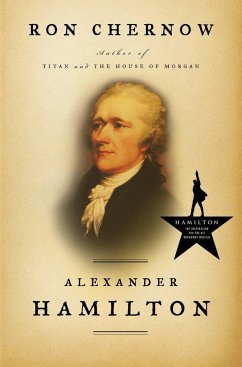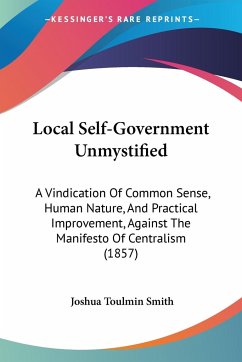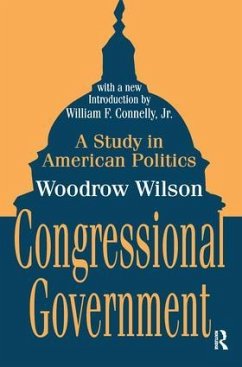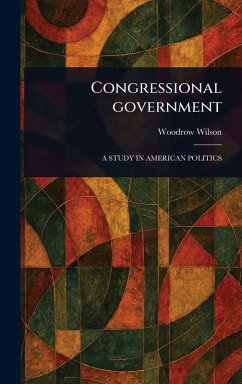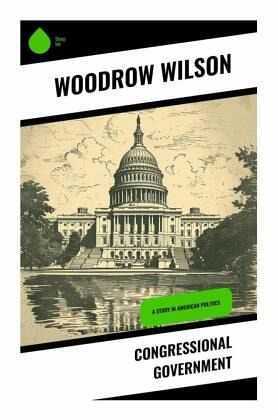
Congressional Government
A Study in American Politics
Versandkostenfrei!
Versandfertig in 6-10 Tagen
10,20 €
inkl. MwSt.

PAYBACK Punkte
0 °P sammeln!
In "Congressional Government," Woodrow Wilson meticulously examines the structure and functioning of the American government, probing the intricate dynamics of the legislative branch. Wilson employs a comprehensive analytical lens, blending historical context with political theory to critique the inefficiencies inherent in a system dominated by congressional authority. His eloquent prose and incisive observations reveal the paradoxes of American democracy, notably the tensions between accountability and efficacy within the legislature, and he offers a profound commentary on the evolving nature...
In "Congressional Government," Woodrow Wilson meticulously examines the structure and functioning of the American government, probing the intricate dynamics of the legislative branch. Wilson employs a comprehensive analytical lens, blending historical context with political theory to critique the inefficiencies inherent in a system dominated by congressional authority. His eloquent prose and incisive observations reveal the paradoxes of American democracy, notably the tensions between accountability and efficacy within the legislature, and he offers a profound commentary on the evolving nature of governance in the early 20th century. Woodrow Wilson, the 28th President of the United States and a prominent political scholar, wrote this seminal work as a response to the political dilemmas of his time. His extensive academic background, including his role as a professor of political science, deeply informed his insights into the congressional system. Wilson's experiences within the political arena helped shape his views on institutional reform, as he grappled with the complexities of achieving governance that is both representative and effective. "Congressional Government" is an indispensable read for scholars, students, and citizens alike, offering a critical examination of the American legislative system that remains relevant today. Wilson's keen analysis invites readers to reflect on the foundations of their government and encourages a deeper understanding of the legislative process, making it a valuable contribution to American political thought.




